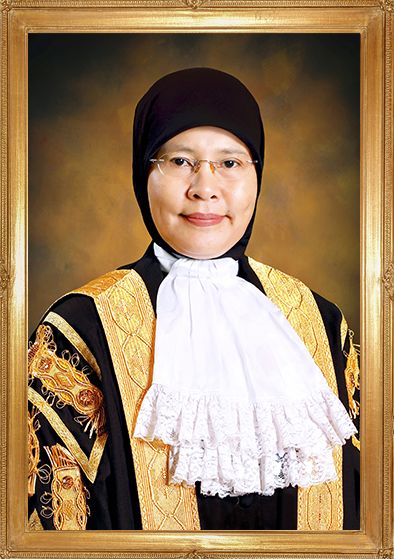A Quick Guide: Who Chooses Malaysia’s Top Judges?

With Tun Tengku Maimun Tuan Mat retiring as Chief Justice of Malaysia, the nation marks the end of a judicial era, an era that shaped precedent and cemented her legacy as the first woman to hold the top judicial post in Malaysian history.
To honour her, let us take the opportunity to better understand how Malaysia’s judiciary works, especially how our top judges are selected. If you're an aspiring lawyer or even aspiring toward judicial service yourself, this is essential knowledge.
Who Appoints the Chief Justice?
The Chief Justice of Malaysia is the Head of the Federal Court, the highest court in the country. But unlike many positions in the legal field, you don’t apply for it, you’re appointed. And not just by anyone.
1. Recommendation by the Judicial Appointments Commission (JAC)
This independent body, established under the Judicial Appointments Commission Act 2009, identifies and recommends suitable candidates for senior judicial roles. The JAC considers criteria such as legal expertise, integrity, experience, and public service.
2. Nomination Submitted to the Prime Minister
The JAC submits a list of names to the Prime Minister, who then selects a candidate from the list.
3. Appointment by the Yang di-Pertuan Agong
Acting on the advice of the Prime Minister, the Yang di-Pertuan Agong (King) formally appoints the Chief Justice.
What Makes This Process Unique?
Our Malaysian system is unique in the sense that is a constitutional monarchy with executive recommendation, and ideally, judicial independence. The JAC’s role is crucial in ensuring impartiality and meritocracy, especially in a climate where the integrity of legal institutions must remain above political influence.
For students, this is a prime example of how law intersects with governance, how Articles 122 and 125 of the Federal Constitution, along with statutes like the JAC Act, shape the checks and balances that keep the judiciary fair, transparent, and accountable.
Why This Matters to You
Whether you dream of becoming a judge or simply want to understand how power operates within our legal system, this topic is at the heart of being a constitutionally literate Malaysian. It shows how the rule of law depends not only on strong legislation but also on transparent processes.
Tengku Maimun’s legacy is a case study in barrier-breaking progress. She will always be someone that the law community in Malaysia will be proud of. For you legal eagles, let her success be a lesson and a guide that no matter what, you can achieve great things in this field.


